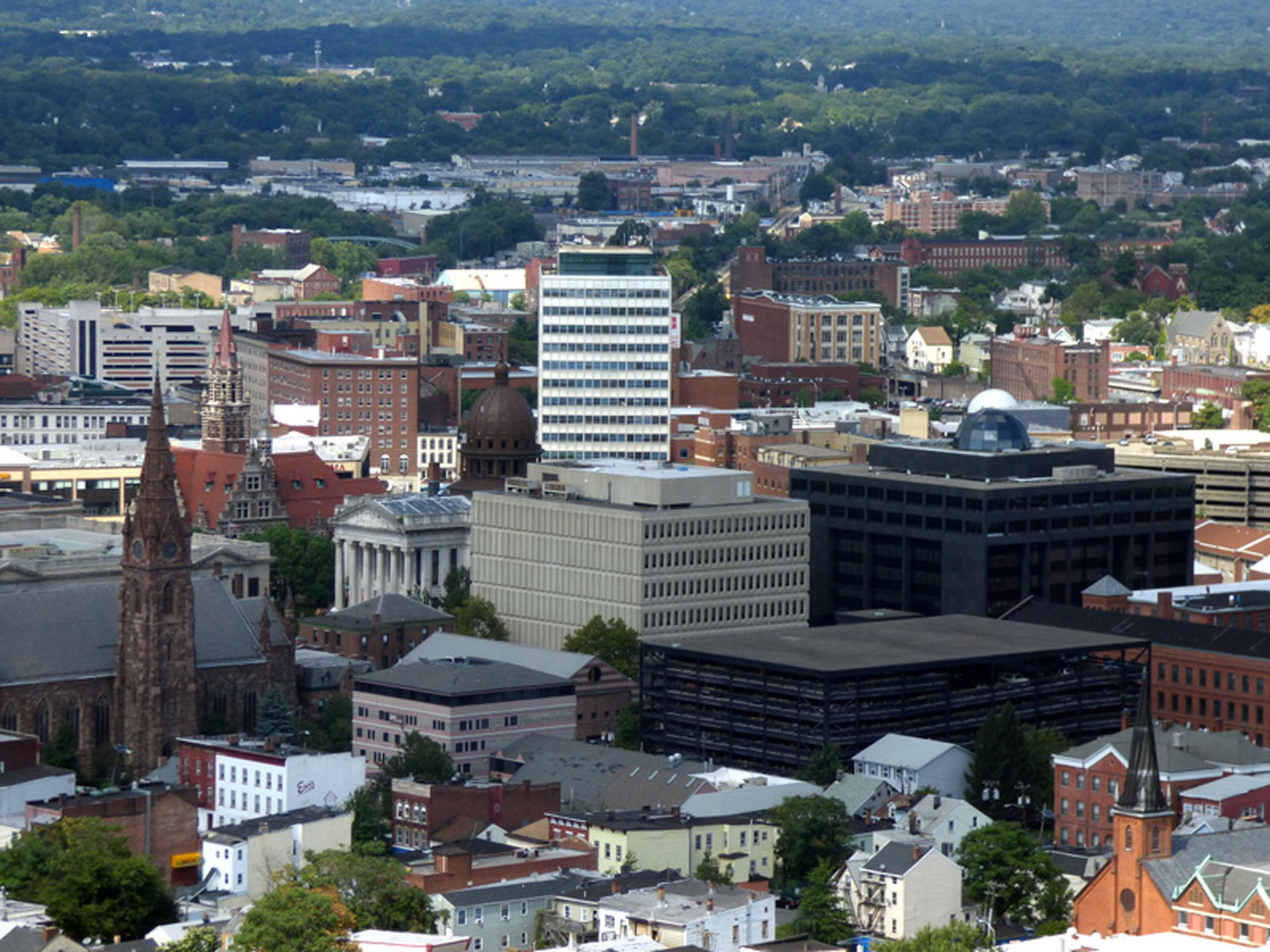WASHINGTON – Political activism is on the rise among Muslim-Americans. And the unexpected catalyst appears to be Donald Trump and other would-be presidential hopefuls who have injected anti-Muslim sentiments into the campaign.
Many Muslim activists say “Islamophobia is a blessing in disguise,” said Essma Bengabsia, an 18-year-old New York University student from New Jersey. “It’s really forcing us to politically organize.”
In New Jersey, which has a primary coming up Tuesday, Muslim-Americans account for about 3 percent of the population, compared with 1 percent nationally, the Pew Research Center estimated. The negative effects of candidates’ anti-Muslim platforms are driving much of the state’s large and diverse Muslim population to unify and engage politically.
“Right now is a very critical time in laying the foundation for American-Muslim activism,” Bengabsia said.
It is too early to tell how the recent Islamophobic rhetoric will affect the November elections, but since 9/11, Muslim community leaders have increasingly encouraged voting and engagement in political debate, said Jocelyne Cesari, director of the Islam in the West program at Harvard University.
Polling shows that the Muslim-American community tends to engage as much or more in civic activities, especially locally, as other Americans, but less so when it comes to formal political activity like voting or being members of political parties, Cesari said.
Especially when it comes to foreign policy, Muslims are sometimes hesitant to engage in the public sphere for fear of being perceived as anti-American.
For 21-year-old Dina Sayedahmed from Hudson County, New Jersey, the stakes are very high in this election. Trump, the apparent Republican presidential nominee, is “openly insulting and humiliating…so many different communities,” she said. “It’s crucial that the Muslim community comes together.”
The state’s Muslim-American population is diverse — with African-American, Arabic, South Asian and North African communities among others. This can make unity and coordination difficult.
“People usually hang around their own ethnic group,” said Jimmy Small, a member of the New Jersey Muslim Voter Registration Project. “That’s America.”
Organizations like Small’s have been trying to change that. For instance, Bengabsia recently helped found The Muslim Network, a group of young activists whose goal is to unite Muslims across New Jersey.
“We’re seeing increasing rhetorical and physical attacks, and that tends to unify any group of people,” said Council on American-Islamic Relations spokesman Ibrahim Hooper.
The idea for the The Muslim Network preceded the presidential race, but candidates’ anti-Muslim rhetoric has acted as an accelerator for the group.
“We’re organizing on a much more efficient level,” Bengabsia said. “Thanks to them, really.”
Many Muslim-American groups have seen an uptick in voter registration as well. Jim Sues, director of CAIR’s New Jersey chapter, said people have been much more receptive to their civic engagement efforts.
Although it’s unclear how many Muslims have registered to vote – religion is not recorded on voting rolls – statistics from heavily Muslim voting districts suggest that registration is up.
For example, 10,957 new voters have registered in the state’s ninth congressional district since January. The district includes the city of Paterson, believed to have the second-highest Muslim population in the nation. Overall, the state’s voter rolls have grown by 114,638 in the same period, to more than 5.5 million, as of May 31. More than 400,000 of those are in the ninth district.
“It has not been hard to register people to vote,” said Small. “Not in the past six months or so.”
CLICK HERE FOR VOTER VIGNETTES FROM YOUNG MUSLIM-AMERICAN WOMEN IN NEW JERSEY
Since the November Paris terrorist attacks in which 130 people were killed and subsequent anti-Muslim rhetoric from some Republican candidates and others, Sues has seen an uptick in verbal assault cases. Many more Muslim-American children come home worried about what could happen to their families because of what they hear on the playground, he said.
Small, who is a teacher, said a student told him that as a Muslim, Small would be kicked out of the country if Trump was elected.
“Down South, my cousins, they don’t even wear headscarves because of how scared they are,” said Fatima Abdallah, 19, from Fairview, New Jersey. “Islam for us is a way of living, and we can’t even feel comfortable with that.”
Abdallah registered 50 people to vote at Rutgers University in Newark, where she studies biology.
Bengabsia said she worried that Trump doesn’t understand the consequences his words have.
“I was born in Brooklyn, raised in Jersey,” she said. “America is my home. But because of the words he’s saying…It’s actually threatening my well-being.”
Bengabsia was deeply hurt by Trump’s claims that he saw Muslims cheering in New Jersey on 9/11. At the time of the attacks, she commuted past the twin towers on a daily basis. If she had been running late that day, she wouldn’t be alive, she said.
“It’s really freakin’ offensive for someone like Donald Trump to come and say that,” she said. “We were affected by it like everyone else…We cry over our family members, as well, who passed away.”
While Muslims have tended to vote Democratic since 9/11, Harvard’s Cesari said research suggests that community members don’t feel that any of the current candidates represent their interests.
That is the case for Halimah Elmariah, 19, from North Bergen, New Jersey. An absence of Islamophobia on the Democratic side isn’t enough, she said.
“What are you doing for the Muslim community? How are you mobilizing them?”


